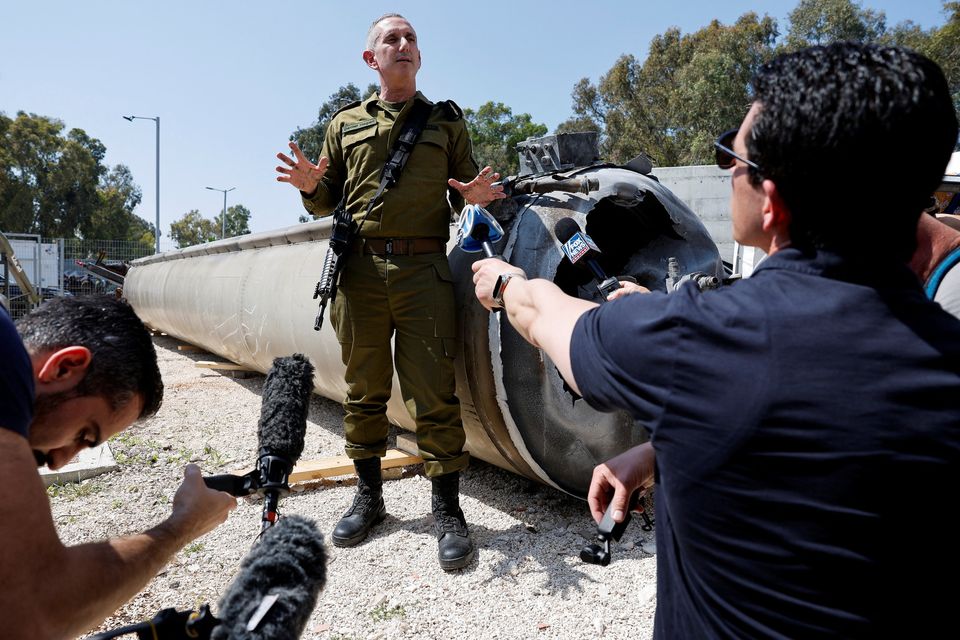Editorial: Humanitarian cost of tit-for-tat reprisals by Israel and Iran would be calamitous
Israeli military spokesperson Daniel Hagari displays what the defence forces say is an Iranian ballistic missile retrieved from the Dead Sea. Photo: Reuters
Once again we find ourselves reduced to being helpless spectators wondering whether the reciprocal actions between Israel and Iran have concluded.
The history of the Middle East is replete with too many examples of how such cycles of revenge, aggression and retaliation perpetuate the tragedy, drawing in new generations.
“Every government has as much of a duty to avoid war as a ship’s captain has to avoid a shipwreck,” wrote Guy de Maupassant.
The greater the power, the more responsibility a state needs to assume in de-escalating the dangers. UN secretary general Antonio Guterres has appealed to the international community to work together to prevent any further development that could lead to devastating consequences.
Tel Aviv ignored Washington’s appeals not to respond to Iran’s wave of drone attacks, which were rendered ineffective thanks to help from the US and Jordan. The stability of the entire region now hinges on how Tehran reacts. With its proxy forces in Syria, Lebanon, Iraq and Yemen on standby, the potential for all-out regional conflagration is frighteningly real.
For now at least, Tehran and Tel Aviv appear not to be invested in upping the ante. However, any further playing of roulette with world peace is unsustainable.
The humanitarian costs of any ratcheting up of the conflict can only be calamitous.
The deadly default position of recourse to force has only ever resulted in sowing new seeds of hate, bequeathing ever more bitter harvests to future generations. Miscalculation by either side could have global consequences.
How far either side will go in fuelling the confrontation in the long term, or whether they can be reined in, remains to be seen. There are too many ways to list of how the situation could unravel disastrously.
The focus needs to be on alleviating, at all costs the already appalling suffering of innocent civilians.
Hearts and minds must concentrate on the urgency of bringing about the swiftest possible conclusion to the war in Gaza.
For global leaders to stand aside and allow tit-for-tat reprisals to extend the horizon of death and destruction between Israel and Iran would be unconscionable.
Energies ought to be centred on an endgame in Gaza with a two-state solution in mind, rather than igniting new fires of rage and resentment. Far from resolution, in the past week we have seen reckless reprisals and renewed risks of disaster.
Washington must wield its unique leverage to prevent the worst. US secretary of state Antony Blinken has called for calm.
“What we are focused on is our work to de-escalate tension,” he said, urging “all concerned to exercise restraint.”
One act of violence has never been redeemed by the infliction of another. Unless those with the power insist stability and peace are paramount, we may remain one missile away from catastrophe.
Join the Irish Independent WhatsApp channel
Stay up to date with all the latest news















